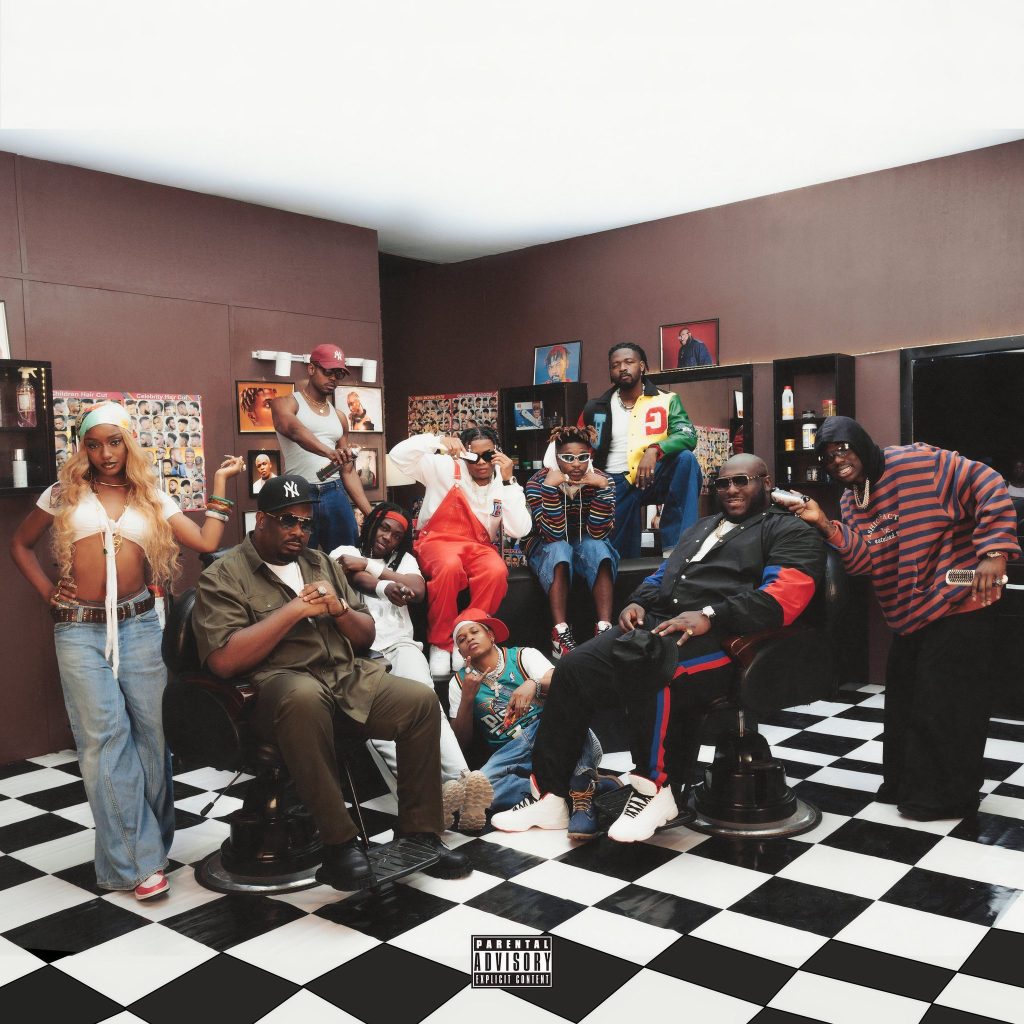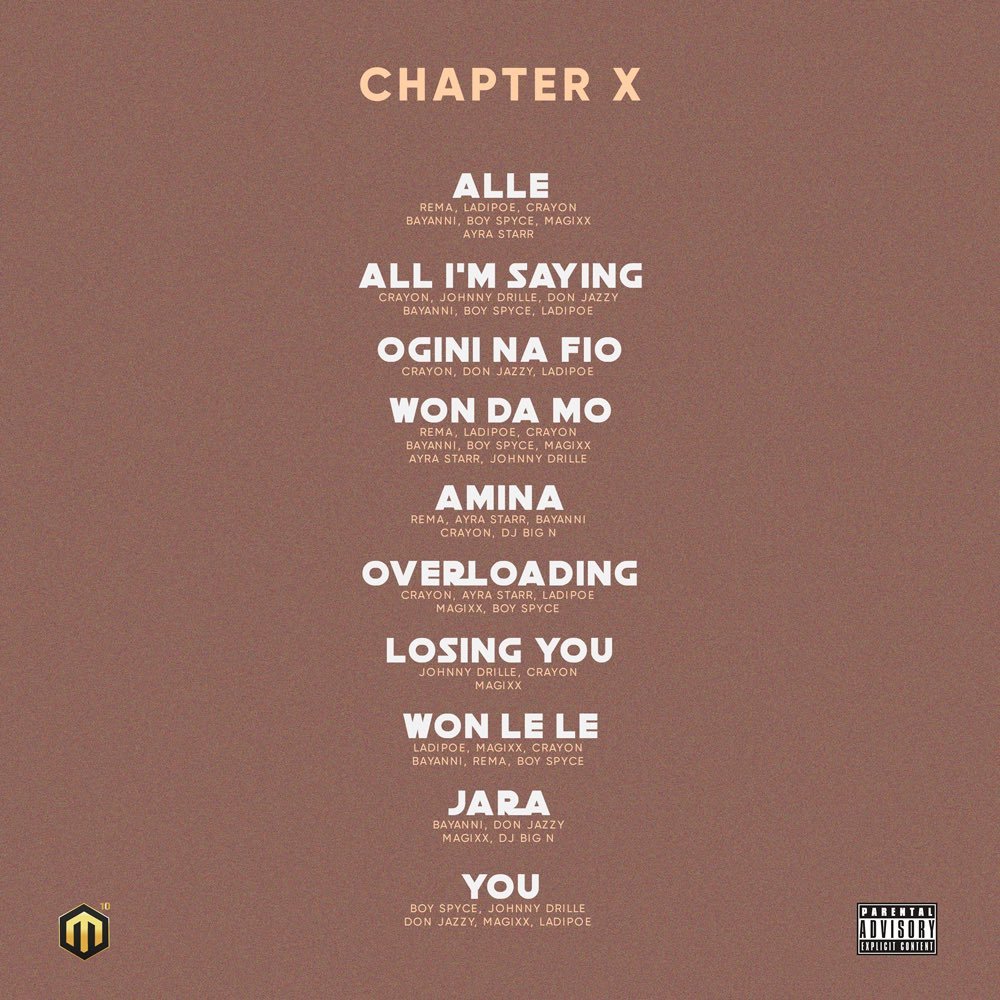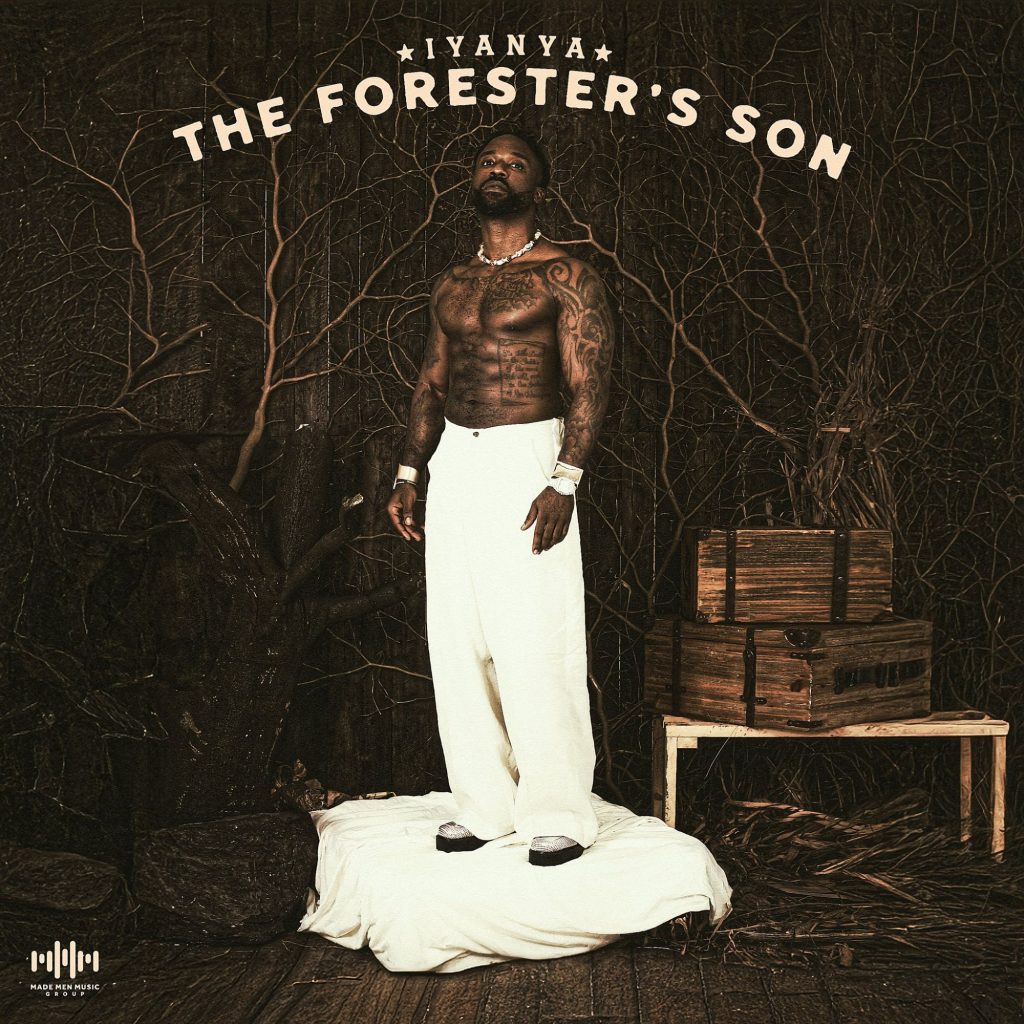When the trailblazing record label, announced their collaborative project to celebrate a decade of excellence, some industry experts could have sworn they saw through their antics. A compilation album from a label with numerous stars, slated for an early December release, barely weeks before the Detty December frenzy. It wasn’t farfetched to imply it was geared to pick up, before the festivities would go into full swing and soundtrack the party-laden period.

Basically, this writer went into this album expecting an Afropop album packed with club bangers in the vein of the second pre-released single that preceded it. However, it came as a huge surprise when after first listen it was pixel clear that said assumption was wrong on a colossal level. Chapter X is an Afro-R&B album with powerful, emotive records that would have you swooning for days. Yeah, there are some few energetic, pop records but it’s mostly dominated with mellow, slow-burn songs.
The holiday might feature a lot of partying, but it’s mostly the oneness and wholesome spirit of it that keeps us all together and Chapter X appeals to that instead, which in my opinion is a more resonant sentiment than sound-tracking the organized chaos that’s characteristic of the Christmas holiday, most especially. It’s also important to note that for a compilation album, it is an exceptional album.
Now this is not me saying this album is perfect or anything close to that. It wouldn’t make the top 10 list of exceptional albums released this year. But for a compilation album, where a cohesive soundscape has to be found to unify various sonic profiles and vocal palettes of different artists—it’s quite impressive. It is another great testament of Don Jazzy being a great curator and A&R, just in case you’ve forgotten the incredible albums he has executively produced over the past 2 decades.

The album opener, Alle has beautiful, euphonious guitar chords that keeps building until it reaches transient heights at the ending and almost every artist vary in their delivery to make the experience richer. That’s another great quality of this record, overall. It aids an environment that enables all the artist to thrive and showcase their different strengths.
Rema’s opening verse is swoony and heartfelt, Ladipoe’s is confessional narrating a nostalgic experience, Crayon is less articulate but yet more expressive, reveling in incoherent honesty, whilst Bayanni seeks for an adventure, opining that his lover be more open minded. Boy Spyce brings a much needed sensual edge to the song and Magixx’s delivery might be the least impressive on a technical level, but it’s definitely the most catchy and inventive of past hit records. Ayra closes out the song with her angelic vocals and reminds us all why she’s the most impressive vocalist on the line-up.
The production on the next song, All I’m Saying isn’t as layered instrumental-wise like Alle, but it has a more pronounced bass in its drums with a simple beeping symphony servicing the harmonizing. Johnny Drille’s calm, sultry voice on the chorus makes the song even more soothing to the ears, despite its heavy kick.
Don Jazzy rewinds time with a delivery that is reminiscent of his performance on features during the Mo’Hits era, and Bayanni proves for the second time why he’s the most deft at finding pockets on a beat in the line-up. Ladipoe sing-raps and while his cadence is tight, Boy Spyce manages to outshine him right after with the most dynamic verse on the record. When the curtain falls on this song, it’s quite clear the direction of this album. It aims for a wholesome, heartfelt experience as opposed to a rollercoaster ride that many would have assumed it was going for.
Crayon is on chorus duty again on Ogini Na Fio, and there is a reason why that’s a recurring theme. He is not the most skillful songwriter around, but he’s adept at crafting relatable and resonant lines that stick and he does it again on the song. The beat here unlike the previous song, doesn’t feature heavy kicks and it’s mostly the claps and synthesizers doing most of the instrumentation. Don Jazzy’s alto blends beautifully into the harmonies, and Ladipoe does most of the lyrical heavy lifting on the record, narrating another intimate encounter that speaks to the soul. It’s not a technical verse, but its effectiveness is in its simplicity to be relatable.
This writer is not the biggest fan of Won Da Mo, because he thinks it’s a very chaotic song that never settles, despite the artists having impressive deliveries. The pre-chorus however and the overall pathos of the song is just very formulaic and derivative. Nonetheless, it’s important to note one of the more important highlights of the song being Rema’s opening verse and how dynamic and brilliant it was.
It is also worthy to also state that Rema in general was more dynamic on this album, in comparison to Rave & Roses. The latter isn’t a bad album in anyway, but one of its lapses was Rema’s predictable and one-dimensional deliveries. At some point, it was so monotonous that you could swap his verses on different songs and nothing about the structure would change. Perhaps, Don Jazzy having a more hands-on approach on this album pushed him. One can never be too sure why, but the way he varies his delivery on Amina is so out-of-the-box and unconventional.
After setting the pace with a very catchy chorus leaning on the ambience of the divergent manipulation of his vocals—his voice goes octaves deeper and is almost grating, later on when he belts out edgy, sensual lyrics on the Amapiano-fusion beat. Ayra also brings some of her own magic that’s prominent on her great pop performances, as she paints picturesque extravagant backdrops. Crayon and Bayanni are so in tune with one another, it’s so hard to distinguish between their vocals and this chemistry ensures the song ends on a high note.
Overloading (Overdose) the first single off the project and the much better one—should have come earlier in the album, right after Ogini Na Fio. It’s more attuned to the R&B soundscape that the album took off with, as opposed to coming right after Won Da Mo and Amina, two very energetic driven pop songs that had ramped up the energy of the project. The positions of the 2 singles should have been swapped. That way, Amina starts the transition to a more energetic phase of the album and Won Da Mo builds on that, as it’s an even livelier record.
Losing You is somewhat of a ballad, except it’s punctuated by subtle hi-hats. It’s an heart wrenching heartbreak song about gradually losing one’s lover, and fighting it at the point it’s already too late and severe damage has been incurred. Johnny is helpless on his verse, desperate to find a solution, moaning about his woes before eventually giving up. It’s the most emotional verse on the album and it works so well that Magixx and Crayon don’t have to do a lot with their verses and only have to follow his template for the song to excel. As of this moment, it is this writer’s favorite song on the album because of his R&B/Soul bias.
Like Won Da Mo, Won Le Le is a pop song that deviates from the emotive, heartfelt soundscape of the album but unlike the single—is a much better song. Magixx is on chorus duty here and delivers so well, you’d almost forget he’s primarily an R&B act. And just like All I’m Saying, Ladipoe has another stellar rap performance overshadowed by Boy Spyce’s sung-rap delivery that closes out the record. Everyone else also did the needful, but those two were the highlights.
Bayanni opens Jara with the same defiant, overcomer sentiment that permeates Won Da Mo and Won Le Le. The beat and sonic template is quite similar to to Won Le Le, except it features more traditional shakers in the chorus. You returns back to the same thematic direction that’s the crux of the album, as the various artists wax poetic about how much their lovers mean to them. The song closes out with every artist signing out with their respective signatures and it’s such a profound action that feeds into the euphoric sentiment of having so many beloved talented acts on one album. It’s the perfect way to see the album out.
There are moments on the album that could have been even better. For example, Losing You is the most soulful record and yet didn’t have Ayra Starr on it, when that’s the sort of sonic atmosphere she excels on the most. It’s one of the more baffling decisions, asides Won Da Mo sounding even more out of place alongside the rest of the album. Nonetheless, it’s a great album overall and one that should stand the test of time.
Final Verdict:
Sonic Cohesion: 1.5/2
Unharried Transitions: 1.3/2
Expansive & Pristine Production: 1.3/2
Songwriting: 1.7/2
Optimal Track Sequencing: 1.2/2
Total: 7/10.
This review is written by T.J. Martins, an Album Talks’ writer.





